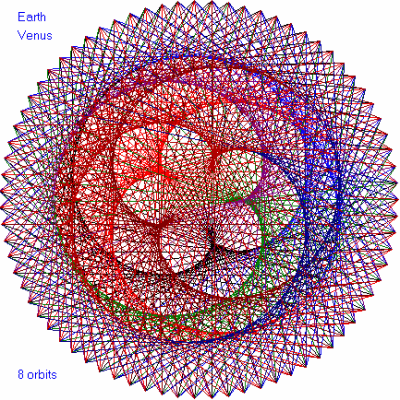Topic: DRUGS - on July 19, 2016 at 4:31:00 PM CEST
Now That It’s Legal, Colorado Teens Are Smoking Less Weed
There’s a common myth about teenagers drinking in France. Because many French young people are allowed moderate amounts of wine at dinner, the story goes, they learn that booze isn’t such a big deal and thus drink more moderately. As it turns out, France has a serious problem with young binge drinkers, so that cute theory is out the window. But in Colorado, where weed has been legal for a few years now, it turns out that pot use among teens has been declining. Could that indicate that legalization leads to more responsible use? The data comes from a recent survey of 17,000 adolescents by the Colorado Department of Public Health and Environment. The most striking facts are these: In 2009, when pot was still a jailable offense, 25 percent of teens there admitted to toking in the last 30 days. In 2015, that number dropped four points, to 21 percent. Additionally, Colorado teens are smoking less than the national average for their age group.
... Link (0 comments) ... Comment
Topic: PHOTO - on July 19, 2016 at 4:27:00 PM CEST
This Vintage 1927 Steampunk Bowling Alley Looks Amazing
During the midst of prohibition, the original Highland Park Bowl first opened in 1927. During the 80s and 90s the space transitioned into an iconic live music venue is Los Angeles called Mr. T’s. Now 89 years later, the 1933 Group have restored and revitalized the vintage bowling alley, transporting patrons into a different era with a steampunk vibe.

... Link (0 comments) ... Comment
Topic: Drone - on July 19, 2016 at 4:26:00 PM CEST
This drone can detect and detonate land mines
The creators of a drone that can autonomously map, detect, and detonate land mines say their technology could potentially clear the world of these deadly devices in the less than 10 years' time. It's an ambitious goal, but one well worth pursuing. Worldwide, there are thought to be some 100 million land mines, many of which are leftover from conflicts long since finished. Every year these mines kill thousands of people, the vast majority of which are innocent civilians. The Mine Kafon Drone (MKD) wants to help change this.
... Link (0 comments) ... Comment
Topic: TOR - on July 19, 2016 at 4:22:00 PM CEST
Core TOR Browser Developer Leaves Project, Shuts Down Critical Node Relays
Lucky Green, a core contributor to the Tor Project, has made an announcement that he would be leaving the onion router project and taking another road to continue his life from now on. The bridge authority relay Tonga managed by Green won’t be serving the Tor network after August 31, 2016. For those who don’t know, Bridge Authorities are special Tor relays which maintain a list of bridges for external bridge distribution mechanisms.
... Link (0 comments) ... Comment
Topic: Space - on July 19, 2016 at 4:20:00 PM CEST
The World's Most Powerful Telescope Just Discovered 1,230 New Galaxies
The MeerKAT First Light image of the sky, released today by Minister of Science and Technology, Naledi Pandor, shows unambiguously that MeerKAT is already the best radio telescope of its kind in the Southern Hemisphere. Array Release 1 (AR1) being celebrated today provides 16 of an eventual 64 dishes integrated into a working telescope array. It is the first significant scientific milestone achieved by MeerKAT, the radio telescope under construction in the Karoo that will eventually be integrated into the Square Kilometre Array (SKA). In a small patch of sky covering less than 0.01 percent of the entire celestial sphere, the MeerKAT First Light image shows more than 1300 galaxies in the distant Universe, compared to 70 known in this location prior to MeerKAT. “Based on the results being shown today, we are confident that after all 64 dishes are in place, MeerKAT will be the world’s leading telescope of its kind until the advent of SKA,” according to Professor Justin Jonas, SKA South Africa Chief Technologist.
... Link (0 comments) ... Comment
Topic: Space - on July 19, 2016 at 4:17:00 PM CEST
Kepler Confirms 100+ New Exoplanets
Astronomers have confirmed another 100 of Kepler's more than 3,000 candidate exoplanets. Phys.org reports: "One of the most interesting set of planets discovered in this study is a system of four potentially rocky planets, between 20 and 50 percent larger than Earth, orbiting a star less than half the size and with less light output than the Sun. Their orbital periods range from five-and-a-half to 24 days, and two of them may experience radiation levels from their star comparable to those on Earth. Despite their tight orbits -- closer than Mercury's orbit around the sun -- the possibility that life could arise on a planet around such a star cannot be ruled out, according to Crossfield." Because the host star as well as many of these other confirmed exoplanets are red dwarf stars, the possibility of life is reduced because the star and its system is likely to have a less rich mix of elements compared to our yellow G-type Sun.
... Link (0 comments) ... Comment
Topic: Space - on July 19, 2016 at 4:16:00 PM CEST
How Do We Beam Pictures Back From Jupiter? It Takes A Village
Before Juno, the uncrewed spacecraft that NASA successfully inserted into orbit around Jupiter on July 4, there was Cassini, a similar multimillion-dollar amalgam of scaffolding, solar panels and scientific instruments that entered orbit around Saturn in 2004. Cassini’s success helped pave the way for Juno, but in 1992, a congressional budget cut nearly grounded that earlier mission before it even reached the launchpad. Tasked with the suddenly urgent job of making Cassini cheaper to build, engineers at the Jet Propulsion Laboratory took an ax to the bits that made the engineers nervous — the moving parts.
... Link (0 comments) ... Comment
Topic: COMPUTER - on July 19, 2016 at 4:14:00 PM CEST
Rätselhafter Riesendeal: Japanischer Milliardär kauft Chip-Designer ARM
Telekomkonzern Softbank übernimmt britische ARM Es ist ein Milliarden-Deal, der Rätsel aufwirft: Der japanische Konzern Softbank kauft sich den führenden Entwickler von Smartphone-Chips. Möglicherweise geht es um das zukünftige Geschäft mit unzähligen vernetzten Geräten im "Internet der Dinge". Die Firma, von der die Chip-Architektur in fast allen Smartphones und Tablets auf der Welt stammt, wird bald einem wagemutigen japanischen Milliardär gehören. Diese Vorstellung ist an sich schon denkwürdig, doch der am Montag angekündigte Deal birgt auch noch ein großes Rätsel: Was will Masayoshi Son überhaupt mit dem Chip-Designer ARM aus Großbritannien? Ins bisherige Kerngeschäft seines Tech-Konglomerats Softbank – Mobilfunk und Beteiligungen an Online-Diensten – lässt sich ARM jedenfalls nicht einfach so einbinden.
... Link (0 comments) ... Comment
Topic: COMPUTER - on July 19, 2016 at 4:11:00 PM CEST
ARM founder says Softbank deal is 'sad day' for UK tech
The founder of ARM Holdings has told the BBC he believes its imminent sale to Japanese technology giant Softbank is "a sad day for technology in Britain". Hermann Hauser said he was "very sad" at news of the £24bn ($32bn) takeover which was announced on Monday morning. The Cambridge-based firm designs microchips used in most smartphones, including Apple's and Samsung's. ARM, which was founded in 1990, employs more than 3,000 people. Mr Hauser called ARM Holdings his proudest achievement.
bbc.com The sell-off of British businesses like ARM must stop
... Link (0 comments) ... Comment
Topic: weiss nicht - on July 17, 2016 at 1:37:00 PM CEST
Dances of the Planets
The planets in the heavens move in exquisite orbital patterns, dancing to the Music of the Cosmos. There is more mathematical and geometric harmony than we realize. The idea for this article is from a book Larry Pesavento shared with me. The book, 'A Little Book of Coincidence' by John Martineau, illustrates the orbital patterns and several of their geometrical relationships. . Take the orbits of any two planets and draw a line between the two planet positions every few days. Because the inner planet orbits faster than the outer planet, interesting patterns evolve. Each planetary pairing has its own unique dance rhythm. For example, the Earth-Venus dance returns to the original starting position after eight Earth years. Eight Earth years equals thirteen Venus years. Note that 8 and 13 are members of the Fibonacci number series. Earth: 8 years * 365.256 days/year = 2,922.05 days Venus: 13 years * 224.701 days/year = 2,921.11 days (ie. 99.9%) Watching the Earth-Venus dance for eight years creates this beautiful five-petal flower with the Sun at the center. (5 is another Fibonacci number.)

... Link (0 comments) ... Comment
Topic: AUSTRIA - on July 17, 2016 at 1:35:00 PM CEST
"Krone": "Mann von einer Ex-Grünen ließ Hunde verenden"
Natürlich hätte die Story mehr hergegeben, wenn es sich nicht um den Mann und nicht um eine Ex-Grüne gehandelt hätte Wo immer das Böse sein scheußliches Haupt erhebt, können wir gelassen bleiben, wacht doch die heilig-heimische Dreifaltigkeit von "Krone", FPÖ und Polizei darüber, dass es nicht triumphiere. Dass dabei nicht immer mit Samthandschuhen gekämpft werden kann, muss jeder und jedem klar sein, dem das Gute noch etwas bedeutet. Um es zu pflegen, griff die "Krone" am Mittwoch zu dem schweren Geschütz nicht der einfachen, nein, gleich der doppelten Sippenhaftung. FPÖ-Abgeordnete empört: "Mann von einer Ex-Grünen ließ Hunde im Auto verenden."
... Link (0 comments) ... Comment
Topic: DRUGS - on July 17, 2016 at 1:30:00 PM CEST
One striking chart shows why pharma companies are fighting legal marijuana
There's a body of research showing that painkiller abuse and overdose are lower in states with medical marijuana laws. These studies have generally assumed that when medical marijuana is available, pain patients are increasingly choosing pot over powerful and deadly prescription narcotics. But that's always been just an assumption. Now a new study, released in the journal Health Affairs, validates these findings by providing clear evidence of a missing link in the causal chain running from medical marijuana to falling overdoses. Ashley and W. David Bradford, a daughter-father pair of researchers at the University of Georgia, scoured the database of all prescription drugs paid for under Medicare Part D from 2010 to 2013.
... Link (0 comments) ... Comment










